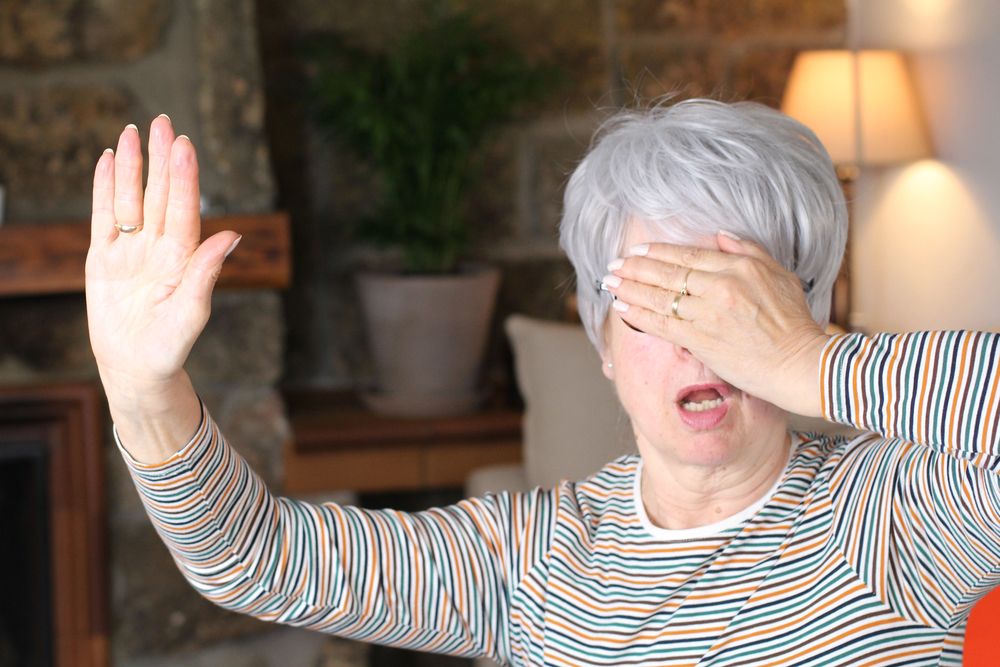Signs of a Bad Nursing Home

Family members must stay alert to subtle warning signs of a bad nursing home before harm reaches their loved one. A nursing home might look clean and friendly at first glance, but serious problems often hide beneath the surface. Substandard facilities can mask nursing home abuse, neglect, and unsafe conditions with a few well-timed tours and staged appearances.
Senior residents deserve quality care, dignity, and respect. If you notice nursing home red flags, you have legal options. Contact a nursing home abuse and neglect lawyer for a free consultation.
Unexplained Injuries Are a Major Warning Sign
Bruises, fractures, burns, or cuts without clear explanations are serious nursing home red flags. Physical abuse, neglect, inadequate supervision, physical restraints, and even sexual abuse often lead to these injuries. Under federal law, family members have the right to request documentation and demand a full investigation.
Unexplained injuries should never be dismissed as accidents, especially in a skilled nursing facility where residents should expect quality care. Injuries can signal deeper problems like poor management, high turnover, or deliberate harm by staff members.
Changes in Mood or Behavior May Signal Emotional Abuse
When a nursing home resident becomes withdrawn, fearful, or aggressive, emotional abuse may be the cause. These changes can be a warning sign that the elderly person is being verbally abused, isolated, or threatened. Trust your instincts if something feels wrong.
Emotional abuse impacts well-being and can cause severe depression in older adults. Skilled nursing and assisted living facility staff are required to protect residents from abuse. Family should act quickly if emotional changes appear without a clear medical explanation.
Disinterest or Apathy from Current Residents
Observing current residents during a visit can reveal hidden problems inside a nursing home facility. Sad expressions, lack of eye contact, and residents avoiding staff members are major warning signs. In a properly managed facility, residents should show signs of engagement and emotional well-being.
Apathy and withdrawal often suggest poor management, understaffing, or emotional neglect. Facilities are responsible for promoting quality care and mental stimulation, not allowing residents to sink into depression or despair.
Poor Food Quality and Dining Room Conditions
Poor food quality is a visible and serious concern in nursing homes. Low-effort meals, ignoring dietary restrictions, and unsanitary dining room conditions all signal nursing home neglect. Older adults require nutritious meals to maintain their strength and immune systems.
When dining areas are dirty or meals are missing essential nutrients, it reflects cost-cutting and poor management. Nursing homes that fail to provide adequate food and clean dining facilities are likely cutting corners in other areas of resident care as well.
Persistent Odors or Dirty Common Areas
Persistent foul odors, visible dirt, or insects are major nursing home red flags. Cleanliness is a basic requirement for care facilities to protect the health and well-being of residents, especially those with weakened immune systems. Dirty hallways, bathrooms, and dining rooms show a failure in infection control and poor hygiene practices.
Skilled nursing and assisted living facilities must maintain clean environments under federal law. Families should consider foul smells and filthy conditions a warning sign of inadequate care.

Staff Who Avoid Questions or Rush Conversations
When staff members dodge questions, rush conversations, or provide vague answers, it suggests deeper problems inside the care facility. Transparent, respectful communication should be standard in any nursing care facility. Evasive behavior may hide staff shortages, neglect, or even nursing home abuse.
Family members have a right to clear information about a resident’s condition and care. Nursing home staff should welcome questions, not avoid them. Trust your instincts if you feel pushed aside or dismissed during a visit.
Lack of Privacy or Dignity in Personal Care
Every nursing home resident deserves privacy and dignity. Warning signs like exposed toileting, rushed dressing, delayed bathroom assistance, or ignoring personal hygiene show a dangerous lack of respect for resident rights.
Skilled nursing and assisted living facilities must protect modesty and independence. Nursing home staff must be trained to assist older adults with care routines without embarrassment or harm. Failure to respect privacy is a strong indicator of deeper issues in staffing, training, and commitment to proper care.
Residents Left in Soiled Clothing or Bedding
Finding residents in soiled clothing or dirty bedding is a clear warning sign of nursing home neglect. Failing to change diapers, clean wounds, or assist with toileting leads to serious health risks, including infections and pressure ulcers.
Residents depend on staff for help with personal hygiene. When nursing home staff fail to provide this basic care, it often points to staff shortages, poor management, or complete disregard for quality care. Federal law requires nursing homes to maintain resident cleanliness and comfort.
Overmedication or Sedation Without Explanation
Excessive drowsiness, confusion, or incoherence may suggest overmedication — a serious form of elder abuse. Some facilities misuse medications as “chemical restraints” to make resident management easier. Family should question unexplained sedation or sudden behavioral changes.
Overmedicating residents violates their right to appropriate medical care and may be a tactic to cover up inadequate staffing. Watch for warning signs like lethargy without medical justification and ask the nursing staff directly about all prescribed drugs.
Medication Errors and Poor Recordkeeping
Medication errors, including skipped doses, wrong prescriptions, or outdated records, are signs of poor management and nursing home neglect. Proper recordkeeping is essential for safe resident care.
Under federal law and Centers for Medicare & Medicaid Services (CMS) rules, every skilled nursing and assisted living facility must maintain accurate medication records and ensure medication is administered correctly.
Inaccurate records or missing dosage information suggest a serious breakdown in basic care and can result in life-threatening consequences for elderly residents.
Staff Shortages or Constant Turnover
High staff turnover and chronic understaffing are major warning signs of a failing nursing home. When a nursing home facility is short on registered nurses, aides, and medical staff, care quality plummets. Overworked and burned-out staff members cannot provide the attention elderly persons need.
Federal standards call for minimum staffing levels to ensure safety and quality care. Facilities that can’t retain staff often struggle with poor management, low morale, and increasing risks of nursing home abuse and neglect.
High Rates of Falls or Frequent Hospital Transfers
Frequent falls and repeated hospital transfers are major indicators of inadequate supervision and poor nursing care facility practices. Many residents fall because call lights go unanswered or assistive devices are not used correctly.
A high rate of falls suggests the facility is failing to protect vulnerable residents. Regular ER trips for preventable injuries should be a red flag for families investigating care concerns. Proper supervision is a critical part of skilled nursing care.
Limited Visitation or Efforts to Isolate Residents
When nursing homes restrict visitation or discourage family visits, it raises serious safety concerns. Isolation tactics can hide signs of physical abuse, financial abuse, and inadequate care. Under federal law, residents have the right to receive visitors without unreasonable restrictions.
Family members must stay alert if staff members make visiting difficult or set strange visiting hours. Limited visitation is a major nursing home red flag that deserves immediate attention and reporting.
Unexplained Financial Changes or Theft
Financial exploitation is another form of elder abuse that often goes unnoticed. Warning signs include sudden changes to bank accounts, new “friends” influencing financial decisions, missing valuables, or unpaid bills.
Family should monitor for suspicious activity, especially with residents diagnosed with Alzheimer’s disease or dementia. Nursing home residents must be protected from theft and financial manipulation. Facilities that fail to safeguard resident property can be held liable for financial abuse.
Lack of Activities or Stimulation for Residents
A lack of organized activities is another clear sign of a bad nursing home. Boredom, isolation, and mental decline are common when facilities fail to offer stimulating activities. Regular events, games, and engagement are essential to maintaining emotional well-being and cognitive health.
Facilities that neglect resident enrichment are often cutting corners in other areas, too. Family members should expect quality care that includes programs designed for older adults’ emotional and social needs.

Staff Gossiping or Displaying Poor Attitudes
Gossiping, rude behavior, and poor attitudes among nursing home staff are major red flags. Unprofessional conduct often points to deeper cultural problems within the facility. Poor management leads to toxic work environments where resident care suffers.
Facilities that tolerate staff disrespect and bullying put vulnerable residents at risk of emotional nursing home abuse and neglect. Families should observe how staff interact with residents and with each other during visits.
Ignored Complaints from Residents or Family Members
When residents or family members raise concerns and nothing changes, the nursing home is failing at basic accountability. Ignored complaints show a disregard for resident safety and quality care.
Family members should document all complaints, follow up in writing, and consider reporting the facility to state or federal authorities. Skilled nursing facilities are required to respond to concerns under human services regulations. Persistent inaction is a clear warning sign of deeper problems.
Legal Help for Families Who Suspect Abuse or Neglect
If you recognize signs of a bad nursing home, don’t wait. Suspected abuse should be taken seriously. Our law firm provides free consultations to families nationwide. Whether it involves physical abuse, emotional abuse, financial exploitation, or nursing home neglect, we can help you seek justice.
Lawsuits filed against negligent nursing homes can recover damages and protect other residents. Contact Nursing Home Law Center today for trusted legal guidance.
Call us at (800) 926–7565 or fill out our contact form to schedule a free consultation.

